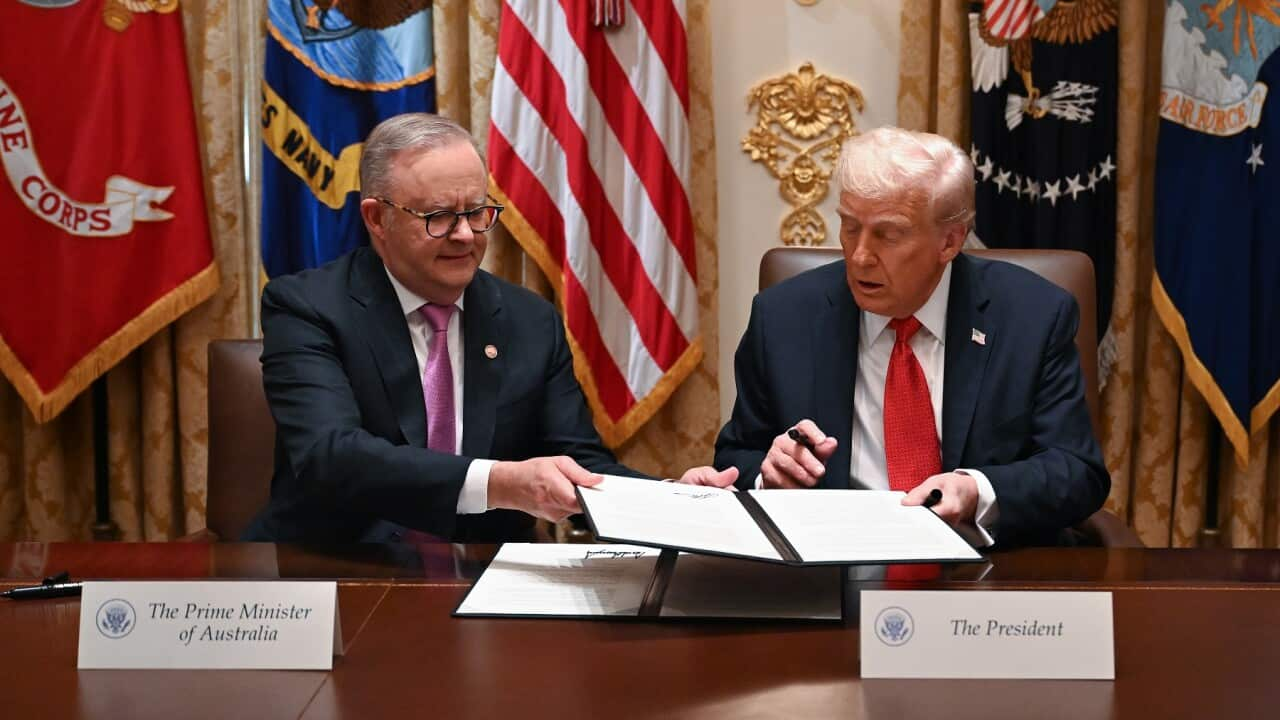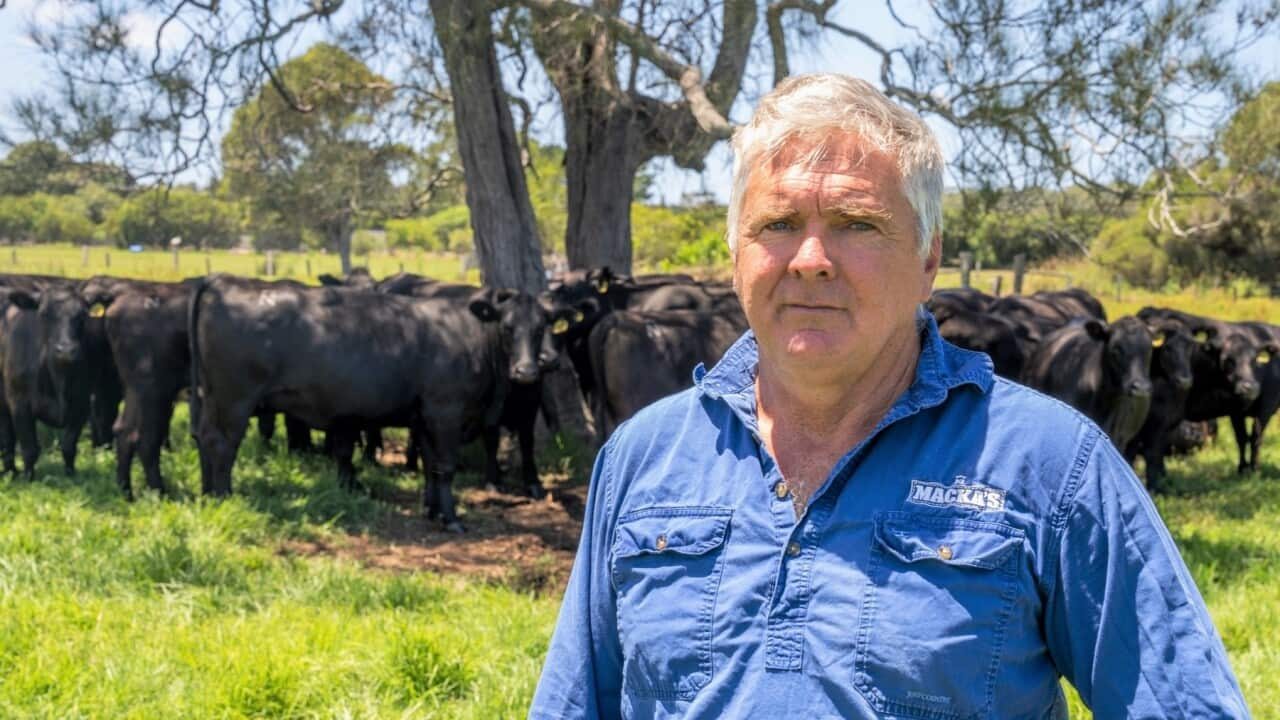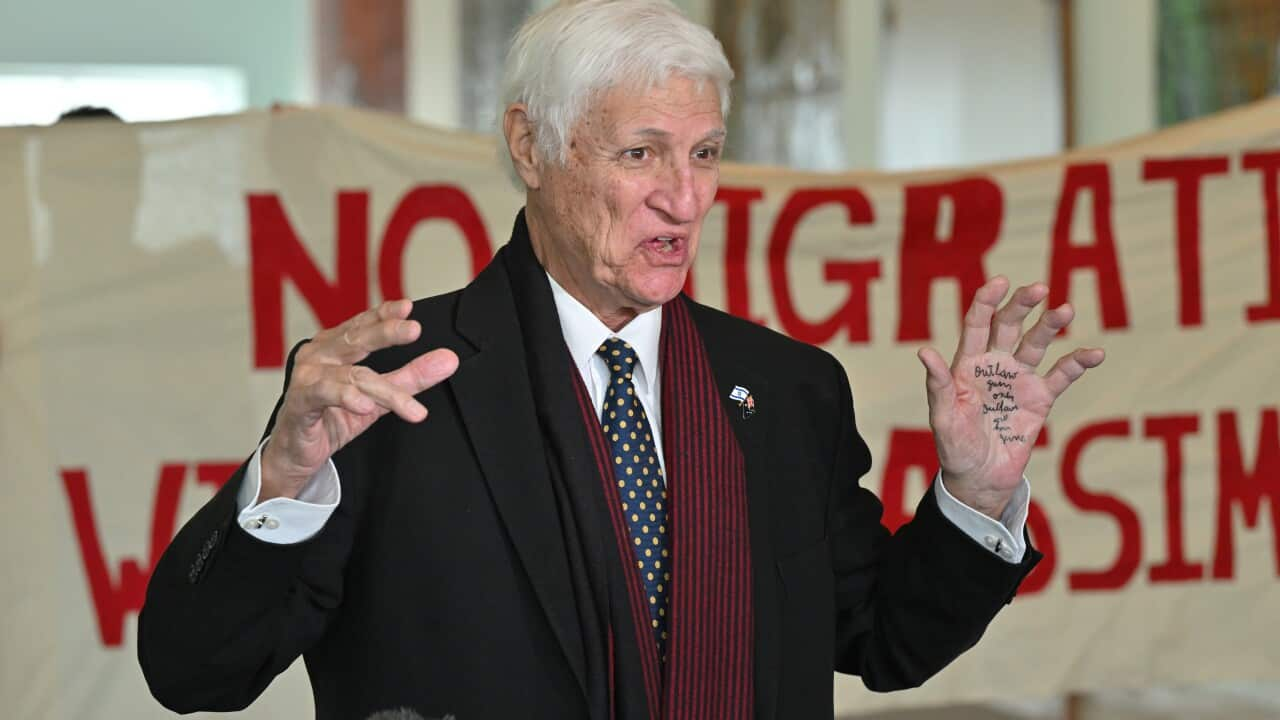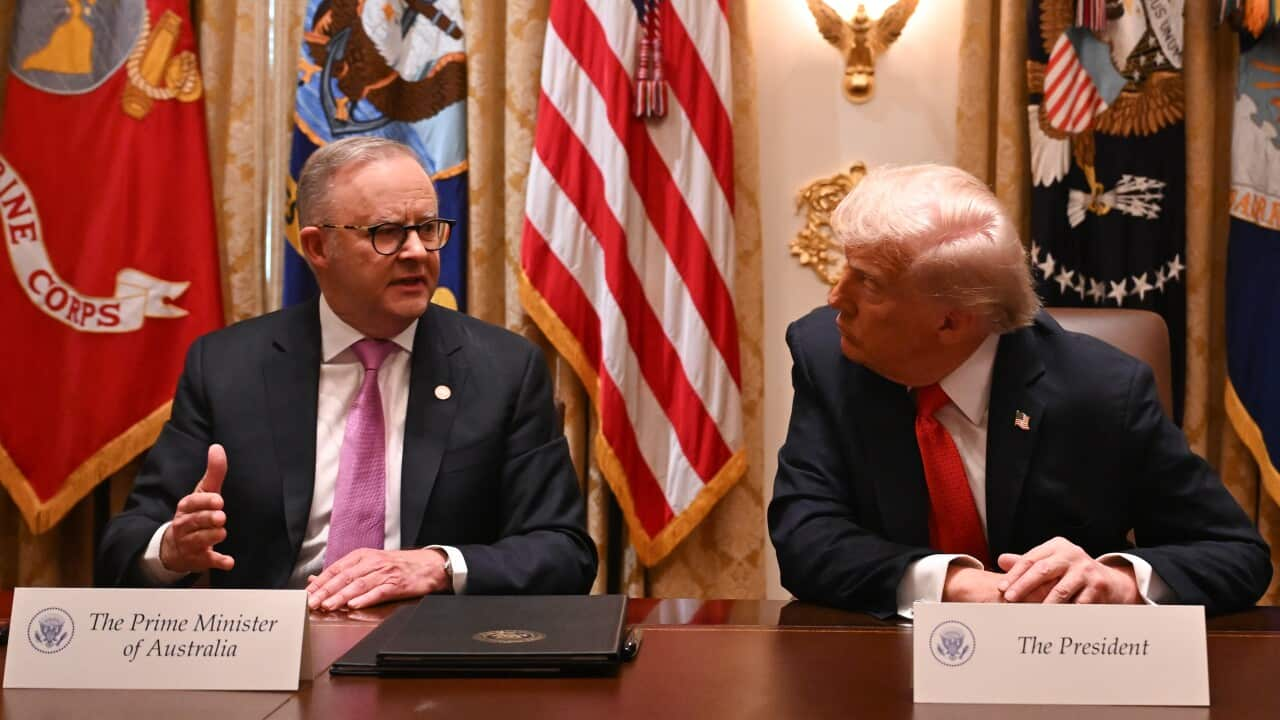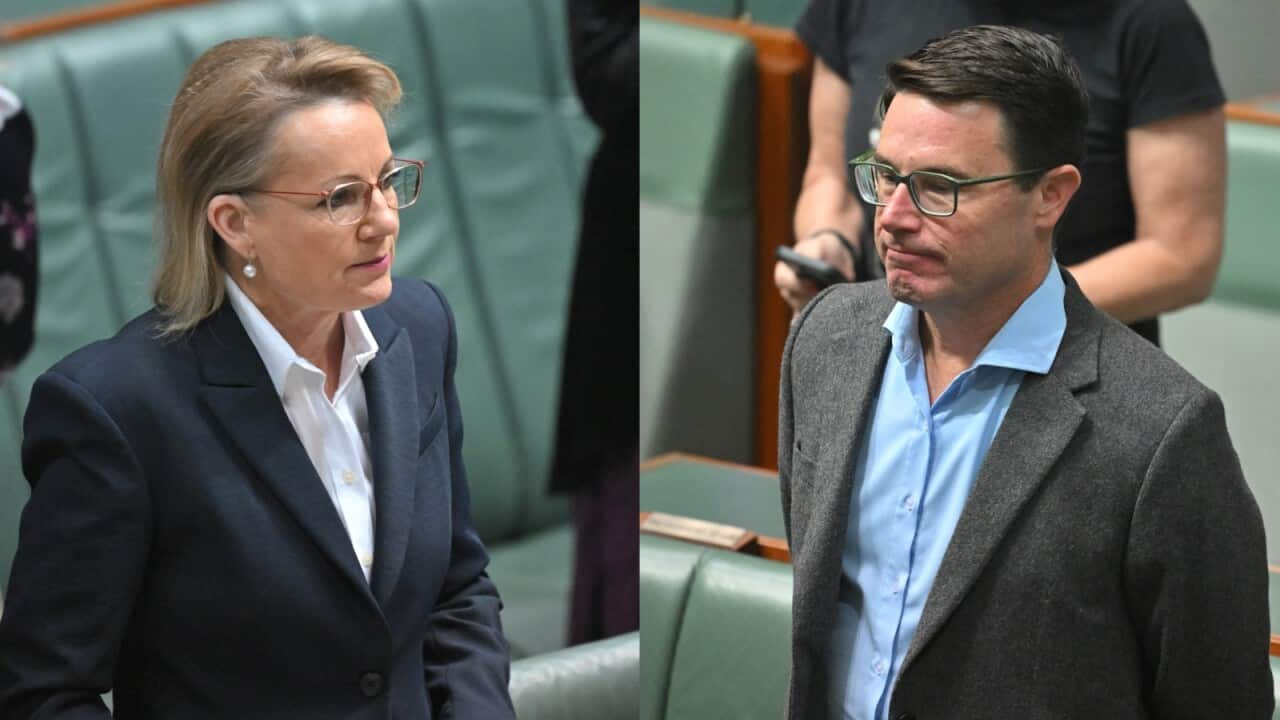Listen to Australian and world news, and follow trending topics with SBS News Podcasts.
TRANSCRIPT
A former primary school teacher, Clarissa Valentine never planned to home-school her twin 12 year old boys.
"Over Covid, a lot of things that were habitual and just part of life changed because we were locked down, and there were a lot of things that I then had never questioned that I started to question. And I am a primary school teacher, I love rules and boxes, and you do this and that. And then everything was kind of stripped back."
But Melbourne's lockdowns and vaccine mandates during the height of the COVID pandemic, prompted a lifestyle change, and a move to the Sunshine Coast.
"And I think moving here, starting again, with that mindset, I thought okay now's the time to, let's create an intentional life, and these are the things I'm going to put in that life. Nothing is perfect, and the education system is not perfect, but I think taking yourself out of it allows you to step back a little bit. Doing that caused me to see it wasn't ideal and I could do it differently."
Clarissa is among thousands of families across the country who transitioned to homeschooling from the onset of the pandemic - some 45,000 children registered for homeschooling in Australia.
But Queensland in particular saw the highest spike in numbers, a trend that has continued years after the pandemic lockdowns.
Queensland's Department of Education reports a 163% increase in homeschooling from 2020 to 2024, bringing the most recently updated number of homeschooling students in Queensland to more than 11,000.
Dr Rebecca English, Senior lecturer in Education at Queensland's University of Technology, says the reasons for Queensland's dramatic uptick are unclear.
"I'm not really sure why it's Queensland, but Queensland has a long history of quite a fractious relationship with state schooling. And that data seemed to suggest the same things we keep seeing in research that parents feel that the school is not the appropriate environment for that young person. I think when you look at the Brisbane area and the Sunshine Coast area and you look at other elements of maybe not going along with mainstream higher rates of non vaccination in around Brisbane and the Sunshine Coast. So maybe it's correlated with that."
But many parents, like Sunshine Coast-based Clarissa, say parents are encouraged to make the switch thanks to a vibrant homeschooling community.
"I think that once the community starts to grow a little, then other people get more confidence to join that community. If you were at home homeschooling and you didn't really know anyone, it can be really isolating. And I think that would be really hard for the parent and for the children. But if you've got other groups of people that are homeschooling, there are park, there are so many things on the Sunshine Coast in particular that you could participate in that you could be busy all day every day. And I think that brings confidence."
Something parents find helpful, when the choice to homeschool is typically unplanned.
Dr English says around 85% of homeschooling students are school refusers, or those who found mainstream schooling didn't work for their child - while the other 15% are ideologically opposed.
"So often there is a strong correlation between the choice of homeschooling and school can't or school refusal in Australia... and I think that's something we really need to look at, how can we better meet the needs of particularly neurodiverse children in our classrooms."
After a year of trying mainstream schooling, Sunshine Coast residents Danika and Joel resorted to homeschooling their eight-year-old son Ben two years ago, after his school refusal and anxiety reached a tipping point.
"He was four, turning five the year that he started prep. And for him to come home in tears saying school's not for me, just him being able to communicate and articulate, that was quite overwhelming for us as parents. We thought what's happening in the school grounds that's making him feel this way? But there was no particular incidents. He just didn't feel safe and secure mentally. And he was just this little 5 year old boy whose heart had been broken, spark had been put out... and it was not the school's fault, it was just the sheer volume of everything on such a little human being."
In Queensland, parents who home-school do not have to adhere to the Australian curriculum.
The previous state government had sought to enforce it, sparking a campaign against the move.
The Free2Homeschool campaign gathered more than 21,000 signatures and more than 2000 submissions opposing the former Queensland government's attempts to enforce the Australian curriculum on home-schoolers.
Brisbane-based Patricia Fitzgerald is Campaign Manager.
"The freedom that we have now is a lot of why we choose homeschooling. So if we're going to take that away, our children may as well be in school. We put up a campaign to make sure that the government heard what we needed and understood us. So a lot of it was around educating them so that we could show that that level of restriction on us was not going to help educate our children."
The current Queensland government tabled new legislation in March 2025, still under review, which removed all the homeschooling reforms opposed to by stakeholders.
Queensland's Education Minister John-Paul Langbroek told SBS it's a parent's right to choose the type of education that suits their family, but safety must always be a priority - adding the government are working to implement all accepted recommendations of an independent review into home schooling.
A separate 2024 review by the Queensland Family and Child Commission also called for better information-sharing between government departments to ensure child safety.
In a random sample of 500 home schooled students, it found 35 children were considered to be living in a high risk home environment between August 2021 and August 2023.
Commissioner Luke Twyford says there needs to be greater visibility of children registered in the home education system.
"So our review was very careful to try and not suggest that it is homeschooling parents that are at risk. That's absolutely not the case. What we are mostly concerned about is that the registration system in homeschooling isn't always picking up risk factors that other government departments are identifying."
Experts stressing the needs of the child must always come first.
"And we need to be responsive to that young person as well. So if they say, mum, dad, I really want to go back to school, or I really want to try school, then maybe we need to really look at the reasons for that young person saying they'd like to go to school."
While still acknowledging the importance of alternative learning, for children like Ben.
"Like normal school, I made it up to grade one and it was a bit hard for me. Some of the questions were a bit hard for me, but with homeschooling you get to solve so many things at your own pace. I am able to solve some pretty complex math questions now and I took my time."
A choice these families don't take for granted.

